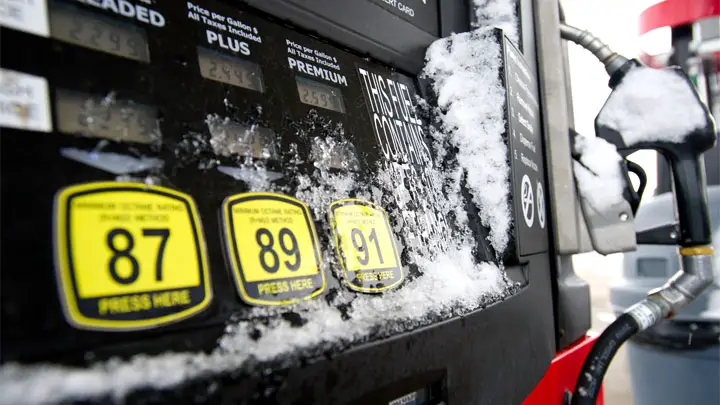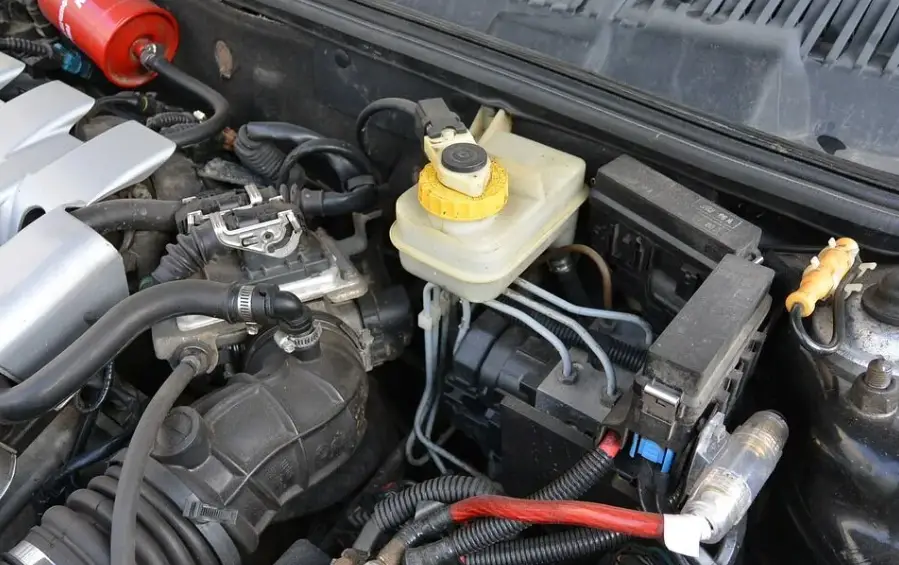Brake fluid in its pure form has an extremely low freezing point, typically around -40°F (-40°C) or lower, making it resistant to freezing under normal conditions. However, brake fluid is hygroscopic, meaning it absorbs moisture over time. Contaminated brake fluid with high water content can freeze or sludge in subzero temperatures, leading to braking issues.
Brake fluid plays a critical role in the vehicle’s braking system, acting as the medium that transfers force from the brake pedal to the brake calipers, ultimately slowing or stopping the vehicle. Understanding how brake fluid behaves under extreme conditions, including freezing temperatures, is essential for maintaining a safe and functional braking system.
One common question among vehicle owners is whether brake fluid can freeze. The short answer is that, while brake fluid is designed to perform in a wide range of temperatures, under certain conditions, it can experience issues that may mimic freezing. Let’s dive deeper to understand this phenomenon, the factors involved, and how to prevent potential problems.

Contents
The Composition of Brake Fluid
Brake fluid is a hygroscopic liquid, meaning it readily absorbs moisture from the air. Most modern vehicles use glycol-based brake fluids classified under DOT (Department of Transportation) standards, such as DOT 3, DOT 4, or DOT 5.1. The freezing point of these fluids is extremely low, making them resistant to freezing under typical winter conditions.
However, the presence of water in the brake fluid can significantly alter its performance in cold temperatures. This brings us to the concept of freezing versus sludging.
Can Brake Fluid Actually Freeze?
Brake fluid is formulated to withstand extreme temperatures, but under certain conditions, it can partially freeze or become less effective. Here’s what you need to know:
Pure Brake Fluid
In its pure form, brake fluid has an exceptionally low freezing point. For example:
- DOT 3 Brake Fluid: Freezing point is approximately -40°F (-40°C).
- DOT 4 Brake Fluid: Freezing point is also around -40°F (-40°C) but with better performance at higher temperatures.
- DOT 5.1 Brake Fluid: Freezing point is below -55°F (-48°C).
Under normal conditions, pure brake fluid should not freeze, even in extremely cold climates.
Contaminated Brake Fluid
The problem arises when brake fluid absorbs water over time. Water in brake fluid lowers its boiling point (leading to brake fade during heavy use) and increases its freezing point. In cold temperatures, the water in the brake fluid can freeze, forming ice crystals or slush. This can clog brake lines or reduce the hydraulic pressure required for effective braking.

Signs of Brake Fluid Problems in Cold Weather
If brake fluid is compromised in freezing conditions, you might notice the following:
- Spongy Brake Pedal: Indicates water in the brake fluid or air in the brake lines.
- Reduced Braking Efficiency: Ice crystals or sludging can impair fluid flow, making braking less responsive.
- Brake Warning Light: Modern vehicles may detect abnormal pressure in the braking system caused by fluid issues.
- Difficulty in Pressing the Brake Pedal: This can happen if ice blocks the fluid path.
Factors Contributing to Brake Fluid Freezing-Like Issues
While brake fluid itself is unlikely to freeze in normal conditions, several factors can lead to issues that mimic freezing or compromise the brake fluid’s performance. Here’s a breakdown:
Moisture Contamination: Brake fluid absorbs moisture from the air over time, especially if the brake system is not sealed tightly or the reservoir cap is frequently opened.
High water content in brake fluid can lead to freezing in cold conditions.
Old or Neglected Brake Fluid: Over time, brake fluid degrades and becomes more susceptible to freezing or sludging. Most manufacturers recommend changing brake fluid every 2-3 years to maintain its effectiveness.
Subzero Temperatures: Extremely low temperatures combined with contaminated fluid can exacerbate the problem, making sludging or ice formation more likely.
How to Prevent Brake Fluid Freezing
Preventing brake fluid from freezing or experiencing freezing-like issues involves a combination of proper maintenance and careful precautions. Here’s a comprehensive guide to keeping your brake fluid in optimal condition:
Regular Fluid Changes: Replace the brake fluid every 2-3 years, or as recommended by your vehicle manufacturer, to minimize moisture contamination.
Use High-Quality Fluid: Stick to the brake fluid type specified in your owner’s manual. DOT 4 and DOT 5.1 fluids have superior cold-temperature performance compared to DOT 3.
Seal the System: Ensure the brake system is properly sealed to prevent moisture intrusion. Always close the brake fluid reservoir cap securely after checking or refilling.
Store Vehicles Properly: If possible, park your vehicle in a garage during extremely cold weather to avoid prolonged exposure to subzero temperatures.
Test Brake Fluid Regularly: Use a brake fluid tester to check the moisture content of the fluid. Replace it if the water content is high.
The Role of Synthetic Brake Fluids
DOT 5 brake fluid, which is silicone-based and not hygroscopic, does not absorb water. While it is immune to moisture-related freezing issues, it is not commonly used in most vehicles due to compatibility issues with ABS systems. If your vehicle requires DOT 5 fluid, consult a professional mechanic for guidance.
What to Do If You Suspect Brake Fluid Freezing
If you suspect brake fluid freezing or freezing-like issues in your vehicle, take immediate steps to ensure safety and address the problem. Here’s what to do:
Warm the Vehicle: Move your car to a warmer environment or use a portable heater to thaw the brake lines.
Check Brake Fluid Levels: Inspect the fluid in the reservoir. If it appears cloudy or contains visible particles, it may be contaminated.
Consult a Mechanic: If you experience brake issues in cold weather, have your brake system inspected and the fluid replaced if necessary.
Frequently Asked Questions
Here are some FAQs about brake fluid and freezing –
1. Can brake fluid freeze in normal winter conditions?
Pure brake fluid is designed to withstand extreme cold and should not freeze under normal conditions. However, contaminated fluid with a high water content can freeze or sludge at subzero temperatures.
2. How often should I change my brake fluid to prevent freezing issues?
It is recommended to change brake fluid every 2-3 years, or as specified in your vehicle’s owner’s manual.
3. What are the signs that my brake fluid is compromised in cold weather?
Symptoms include a spongy brake pedal, reduced braking efficiency, or difficulty pressing the brake pedal.
4. Can I use antifreeze to prevent brake fluid freezing?
No, antifreeze is not compatible with brake fluid and should never be added to the brake system. Instead, use high-quality brake fluid and maintain it properly.
5. What should I do if my brakes stop working in freezing conditions?
Safely pull over, warm the vehicle if possible, and consult a mechanic. Avoid driving until the issue is resolved.
Conclusion
While brake fluid in its pure state is resistant to freezing, the presence of moisture can compromise its performance in cold weather. Regular maintenance, using high-quality brake fluid, and ensuring a sealed system are key to preventing freezing-like issues. By taking proactive measures, you can ensure your braking system remains reliable and safe, even in the harshest winter conditions.